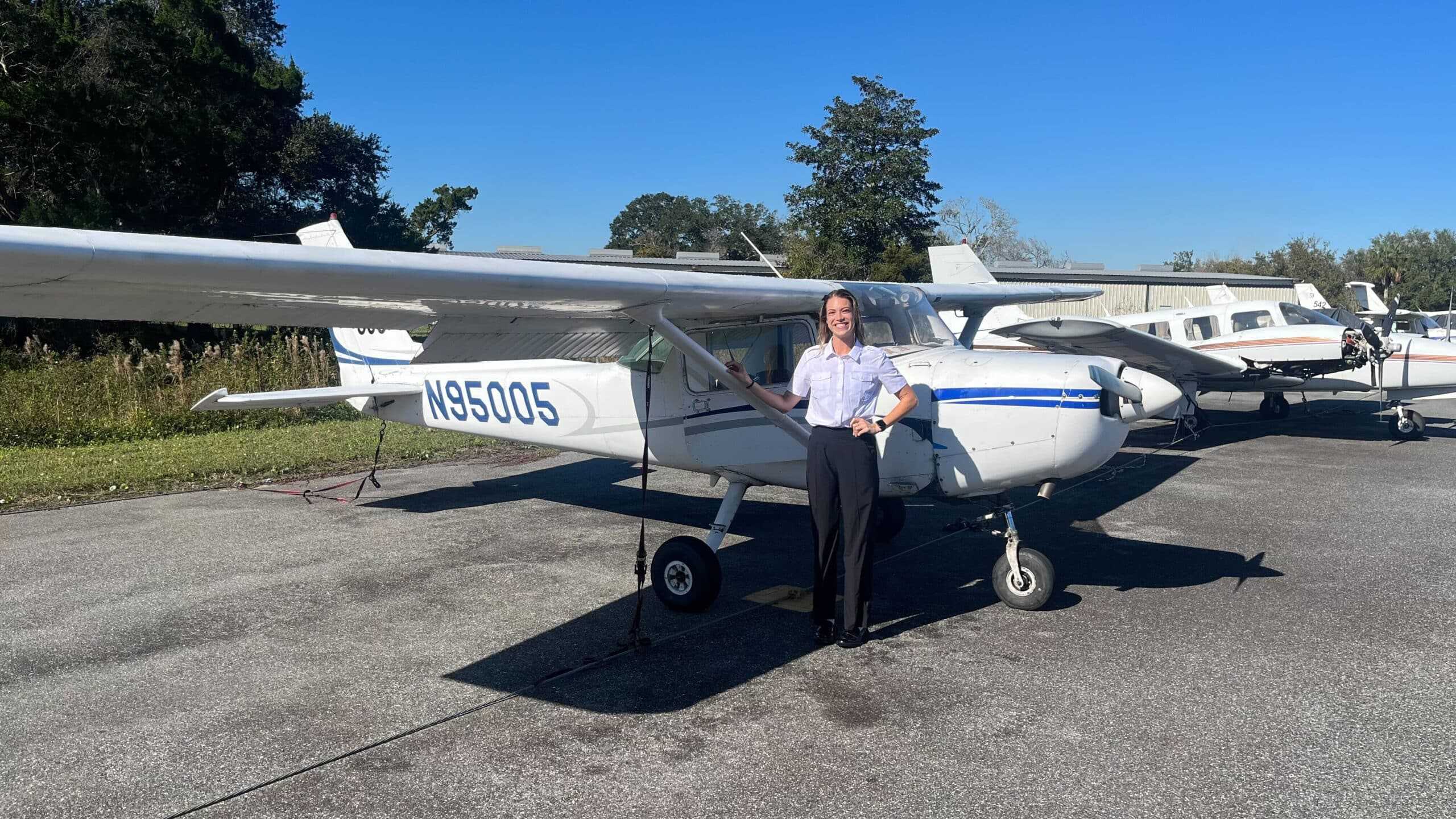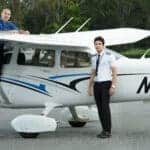DGCA Exam for Pilot: The #1 Ultimate Guide to Requirements and Syllabus

Introduction to DGCA Exam for Pilot
The journey to becoming a pilot in India is exciting yet challenging, with one of the biggest hurdles being the DGCA exam. Recognized and regulated by the Directorate General of Civil Aviation (DGCA), this exam is a crucial part of the certification process. Aspiring pilots must pass this rigorous exam to meet India’s strict aviation standards and operate aircraft professionally. In this ultimate guide to the DGCA Exam for Pilot, we’ll explore everything you need to know about the requirements, syllabus, and study tips, ensuring you have all the tools for success in your career as a pilot.
What is the DGCA Exam for Pilot?
The DGCA Exam for Pilot is the official testing procedure administered by the Directorate General of Civil Aviation in India. Established as the primary regulatory authority for civil aviation in the country, the DGCA oversees the safe and efficient conduct of all aviation activities. This exam ensures that pilots, whether aspiring to hold a Private Pilot License (PPL) or a Commercial Pilot License (CPL), meet the standards required to operate aircraft safely.
The DGCA exam is a multi-tiered evaluation system that includes written tests and, in some cases, an oral examination. While PPL holders need a basic understanding of flight principles, CPL aspirants must master a more advanced curriculum that includes air regulations, meteorology, navigation, and aircraft technical knowledge. For pilots in training, passing the DGCA Exam for Pilot is essential as it paves the way to achieving the licensing required to operate commercial flights.
Eligibility Requirements for the DGCA Exam for Pilot Aspirants
To sit for the DGCA Exam for Pilot, candidates must meet certain eligibility criteria. These requirements ensure that candidates are adequately prepared for the challenges of the exam and, ultimately, the responsibilities of piloting an aircraft.
The first requirement is the age limit. To apply for the DGCA exam, candidates must be at least 17 years old for a PPL and 18 years old for a CPL. Additionally, a minimum level of education is mandatory. Candidates need to have completed high school (10+2) with science subjects, specifically Physics and Mathematics. If you do not have these subjects, alternative qualifying exams can be taken to meet this prerequisite.
Medical fitness is another critical eligibility factor. All DGCA exam candidates must obtain a Class II medical certificate, but a Class I certificate is required later in the training process, especially for those aiming for a CPL. The Class I and Class II certificates verify physical and mental health, confirming the candidate’s ability to handle the demands of piloting. Regular medical check-ups will be part of your professional life as a pilot, as these certifications need to be renewed periodically.
Flight experience is also essential for those taking the CPL exam. Candidates must log a minimum number of flying hours as part of their training, which includes both solo and dual flights with an instructor. This flight experience ensures practical knowledge and confidence in handling an aircraft before attempting the DGCA Exam for Pilot.
How to Register for the DGCA Exam for Pilot Certification
The registration process for the DGCA Exam for Pilot is straightforward, provided you follow the steps carefully. The DGCA has streamlined its application process through an online portal where you can create a user profile, submit necessary documents, and select exam dates.
To begin, you’ll need to create an account on the DGCA’s Pariksha portal, the official website for exam applications. Here, candidates are required to upload a scanned copy of their educational certificates, ID proof, and medical certificates. It’s important to ensure these documents are in the correct format, as failure to do so can delay your application. After uploading the required documents, you can select the examination center and date, typically from a list of DGCA-approved centers across India.
Once the application is submitted, the DGCA will review the information and approve eligible candidates to sit for the exam. Keep track of important deadlines and double-check your application to avoid last-minute issues. Registering for the DGCA Exam for Pilot is a vital step, and it’s essential to prepare and organize everything in advance.
Structure of the DGCA Exam for Pilot Candidates
The DGCA Exam for Pilot consists of multiple components, primarily focusing on written tests. Each exam assesses the candidate’s understanding of key subjects, which are divided into individual tests. The exam is typically conducted in a multiple-choice question (MCQ) format, allowing candidates to demonstrate their theoretical knowledge and practical understanding of flying principles.
The exam covers several subjects, including air regulations, air navigation, meteorology, and aircraft and engine knowledge. Each subject is tested separately, and candidates need to pass each section to qualify. In addition to the written exams, there’s often an oral component, especially for those pursuing a CPL. This oral test allows examiners to assess a candidate’s practical knowledge and readiness to handle in-flight scenarios.
Each exam is timed, and candidates must complete it within the allotted duration. Passing criteria vary, but candidates generally need a minimum score in each subject to qualify. Understanding the structure of the DGCA Exam for Pilot helps in organizing your preparation, ensuring you allocate sufficient study time to each topic.
Detailed DGCA Exam Syllabus
The syllabus for the DGCA Exam for Pilot is extensive and covers various critical areas. Below, we break down each primary subject and the essential topics you’ll need to master.
Air Regulations: This section covers the laws and regulations governing civil aviation in India. Topics include the responsibilities and privileges of a pilot, international regulations, and specific DGCA guidelines. You’ll need to understand the Indian Aircraft Act, 1934, and the Civil Aviation Requirements (CAR) to succeed in this section.
Air Navigation: Navigation principles are crucial for all pilots. In the DGCA exam, this subject includes map reading, compass use, and understanding navigational aids like the VOR and GPS. Candidates will learn to calculate headings, estimate ground speed, and plot routes. Mastery of these concepts is essential for safe and efficient flying.
Meteorology: Knowledge of meteorology allows pilots to interpret weather conditions and make informed decisions. This section includes the study of atmospheric conditions, pressure systems, cloud formations, and interpreting weather reports. Candidates will also learn about METAR, TAF, and other aviation-specific weather forecasts.
Aircraft and Engine Knowledge: This area tests your understanding of the aircraft’s mechanical components and the functioning of its engine. Topics include the principles of aerodynamics, aircraft systems, and engine operations. For CPL aspirants, knowledge of multi-engine aircraft may also be required, as they need to demonstrate a deeper understanding of more complex systems.
Radio Telephony: Communication is essential in aviation, and this section covers radio telephony procedures and phrases used in aviation. Candidates will learn to communicate with air traffic control, interpret messages, and ensure accurate in-flight reporting. This section also includes understanding the phonetic alphabet and basic emergency communications.
Studying each of these subjects thoroughly is key to passing the DGCA Exam for Pilot. Using recommended textbooks, online resources, and DGCA-approved study guides will provide you with a comprehensive understanding of these topics.
Effective Study Tips for the DGCA Exam for Pilot Certification
Preparing for the DGCA Exam for Pilot requires a strategic approach to studying, as the syllabus is extensive and the exam demands both theoretical and practical knowledge. Begin by creating a study plan that divides your time among the subjects based on your strengths and weaknesses. Consistency is key, so allocate daily study hours and stick to the schedule.
Mock tests and previous question papers are highly valuable in preparation. Practicing with these materials not only familiarizes you with the question format but also helps you manage your time effectively during the actual exam. Enroll in a DGCA-approved ground school or an online course if possible, as these classes often provide guided study sessions and important insights into exam trends.
In addition to studying the syllabus, take time to review your flight training notes. Many questions, especially in navigation and radio telephony, are based on real-world scenarios. Developing a thorough understanding of flight operations and emergency procedures will benefit you immensely in the exam.
Overcoming Common Challenges in the DGCA Exam for Pilot
Preparing for the DGCA Exam for Pilot is challenging, and it’s common for candidates to encounter difficulties. One of the main challenges is the extensive syllabus, which can be overwhelming. Breaking down each subject into manageable parts and setting small, achievable goals helps in maintaining motivation. Keep track of your progress and reward yourself for meeting study milestones.
Exam anxiety is another hurdle. Practice breathing techniques and mindfulness exercises to stay calm and focused. The DGCA exam is rigorous, but if you’ve prepared thoroughly, you’ll be well-equipped to handle it confidently. Taking practice exams under timed conditions helps build confidence, as you’ll get used to answering questions within the exam’s time limits.
Balancing flight training with study time can also be challenging. Allocate specific days for practical flying and others for exam preparation. Creating a balanced schedule will ensure that you don’t burn out while still making steady progress.
Preparation Tips for the DGCA Oral Exam for Pilot Certification
The oral component of the DGCA Exam for Pilot is an essential part of the certification process, especially for Commercial Pilot License (CPL) aspirants. This assessment tests your practical knowledge, decision-making abilities, and communication skills, all of which are vital in real-world flying. Examiners commonly cover topics like air navigation, meteorology, and emergency protocols, evaluating how well you can apply your theoretical knowledge to practical scenarios. Here are some targeted tips to help you prepare:
1. Review Flight Training Notes and Key Concepts
Go over your flight training notes to reinforce important concepts, as these will often form the basis of oral questions. Refresh your understanding of navigation methods, weather phenomena, and aircraft systems, focusing on areas you’re less confident about. Prioritize reviewing topics like crosswind landings, fuel calculations, and emergency landing procedures, as these practical aspects tend to be examined closely.
2. Practice Answering Aloud to Improve Clarity and Confidence
Oral exams require clear and precise communication, so practice explaining concepts aloud as if you’re speaking to an examiner. Consider studying with a friend, instructor, or fellow pilot trainee who can quiz you on different topics. Responding aloud will build confidence and help you articulate complex topics without hesitation. Practicing this way also gives you a sense of what questions might catch you off guard, allowing you to work on those areas.
3. Simulate Real-Life Scenarios
Simulating in-flight scenarios is one of the most effective ways to prepare. Imagine hypothetical situations such as sudden weather changes or minor equipment failures and talk through how you would handle each one. Try to describe step-by-step actions you would take, such as communicating with air traffic control or adjusting your route. This type of role-play sharpens your decision-making skills and prepares you to answer “what if” questions with confidence.
4. Develop Quick Recall Techniques for Key Facts and Procedures
The oral exam often tests your ability to recall crucial information quickly, so practice techniques that help with memory retention. Mnemonics, acronyms, or flashcards can be helpful for memorizing complex procedures, radio frequencies, or navigation steps. Quick recall of information like VOR (VHF Omnidirectional Range) procedures or standard operating phrases in radio communication will showcase your preparedness and attention to detail.
5. Maintain Calm and Composure Under Pressure
The oral exam assesses not only your knowledge but also your ability to remain calm under pressure—an essential skill for any pilot. To keep anxiety at bay, practice relaxation techniques like deep breathing before the exam. Additionally, approach each question thoughtfully, pausing briefly to organize your thoughts before responding. This pause can help ensure you answer accurately and avoid rushing through your response.
6. Focus on Communicating with Precision
Precision in communication is key to passing the DGCA Oral Exam for Pilot. Pay attention to how you phrase your answers, avoiding vague or overly technical language that may confuse your response. For example, if asked how you would respond to a sudden drop in altitude, clearly outline your step-by-step approach without skipping details, such as “I would first check the aircraft’s trim settings, followed by…” Precision shows that you have a thorough and practical grasp of procedures.
7. Review Commonly Asked Questions and Scenarios
To increase your familiarity with likely questions, review lists of commonly asked oral exam questions for DGCA certification. These often include scenarios like dealing with radio communication loss, handling fuel emergencies, or safely navigating unexpected weather patterns. Practicing responses to these common questions not only makes you better prepared but also boosts your overall confidence.
Best Resources for DGCA Exam for Pilot Preparation
Several resources are available to help you prepare effectively for the DGCA Exam for Pilot. DGCA-approved textbooks, online courses, and coaching classes offer structured guidance
on each subject. Official DGCA publications, such as the Civil Aviation Requirements (CAR) and the Indian Aircraft Act, are invaluable for the air regulations section. Additionally, mock tests and question banks provide realistic practice and help you get accustomed to the exam format.
Conclusion: Succeeding in the DGCA Exam for Pilot Certification
The DGCA Exam for Pilot is a crucial milestone on your journey to becoming a licensed pilot in India. With dedicated study, disciplined preparation, and confidence, you can succeed in this rigorous assessment. Remember that passing the DGCA exam not only qualifies you for pilot certification but also lays the foundation for a successful career in aviation. Consistency, patience, and thorough preparation are your best allies in achieving your dream of flying professionally.
Ready to take the next step toward your dream career in aviation? Florida Flyers Flight Academy India is here to guide you every step of the way! With top-tier training programs, experienced instructors, and a commitment to excellence, we ensure you’re fully prepared for the DGCA Exam for Pilot and beyond. Start your journey to becoming a licensed pilot with us—enroll today and get ready to soar!
Contact the Florida Flyers Flight Academy India Team today at +91 (0) 1171 816622 to learn more about the Private Pilot Ground School Course.



